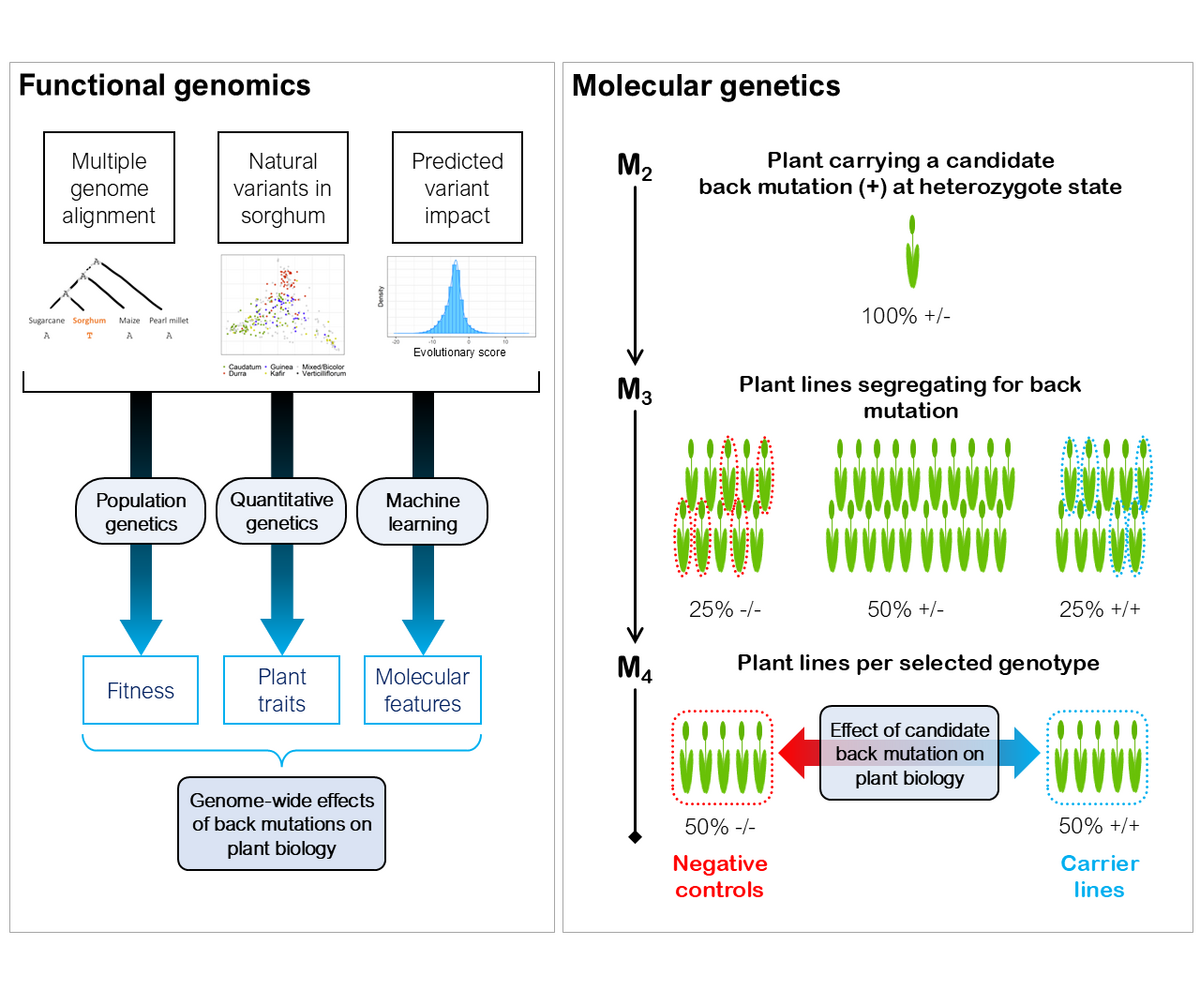BackOnTrack
"Phylogenomic discovery of beneficial variants for precision breeding: proof of concept in sorghum"
The BackOnTrack project will use comparative genomics and biological language models to identify beneficial variants for precision breeding.
⌐ The project has been granted 2.258.199 DKK in funding.
⌐ The project starts on 1 January 2025 and will end on 30 June 2026.
Introducing the BackOnTrack project
Phylogenomic discovery of beneficial variants for precision breeding: proof of concept in sorghum
The BackOnTrack project aim to use comparative genomics and biological language models to identify beneficial variants for precision breeding
Background for the project
Changing climates, the rise of plant-based diets, and alternative agricultural practices will require rapid improvement of crop varieties. To meet this challenge, plant breeders can resort to precision breeding technologies, which induce specific variants in crop genomes without time-consuming crosses. However, it is difficult to identify the exact beneficial variants which must be induced for desired traits like improved grain quality and crop resilience. To overcome this difficulty, we propose to identify beneficial variants efficiently, by a computational technique which detects back mutations – variants which revert harmful alleles to their original state.
The activities
In our project, we will test our ability to prioritize useful variants for precision breeding in sorghum, a convenient model species for cereal crops. Prior to our project, we targeted five genes based on literature search and gene expression analysis: two genes involved in grain quality (sugar metabolism), one gene involved in synthesis of methionine (an essential amino acid), and two genes involved in crop resilience (drought tolerance and photosynthetic activity). Then, candidate beneficial variants in targeted genes were detected by our computational technique, and induced in mutant lines by FIND-IT, a precision breeding technology that is not subjected to EU regulation on GMOs. In BackOnTrack, we will test the effect of candidate beneficial variants on fitness, protein structure, and experimental measurements (gene expression, plant physiology, and grain quality). Significant differences between mutants and wild-type controls will show the potential of our technique to support precision breeding by FIND-IT, or other technologies like CRISPR.
The outcome
In the short term, BackOnTrack will provide a proof of concept for our proposed approach in sorghum and related cereal crops like barley. In the long term, BackOnTrack will enable fast, precise, and useful genetic edits in any crop, for more resilient and sustainable agricultural systems. BackOnTrack may also open new possibilities in biological research, to analyze gene function by candidate beneficial variants rather than highly disruptive variants like the knock-out mutations which are typically used in experimental biology.


